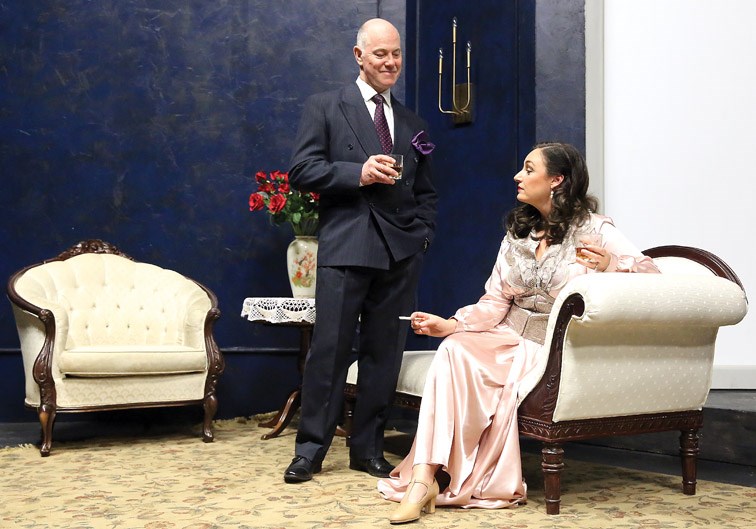In the midst of the shocking revelations of sexual harassment in Hollywood last fall, Theatre NorthWest set out to establish what may be a first in B.C.'s theatre community: a policy regulating intimate scenes performed by actors.
The theatre company had never experienced any direct complaints of sexual harassment or inappropriate behaviour from cast or staff. Still, Theatre NorthWest general manager Marnie Hamagami began exploring workplace policies that would ensure the company was providing a safe working environment that could apply to the non-traditional work environment of a theatre company.
"We were focusing a lot on mental health and making sure that all of our artists were cared for in the way that they needed to be," Hamagami said.
This led her to College of New Caledonia student Caitlyn Soder. Soder, a practicum student in CNC's Human Resource Management post-diploma program, sat down with Hamagami last month to look into developing an intimate choreography policy.
"My first meeting with Marnie, she went over her ideas for the policy and talked about some of the recent issues that had been experienced in the theatre industry, specifically at Soulpepper," Soder said.
Soulpepper Theatre Company, one of the most established theatre companies in Toronto, had by then been rocked by a civil lawsuit levelled at artistic director Albert Schultz. Four former Soulpepper performers had alleged Schultz had carried out a pattern of unwanted groping, harassment and sexual remarks over a 13-year period.
For Soder, the scandal served to identify the limitations of traditional workplace sexual harassment policies.
"It really brought to light the need for a policy, because a lot of theatres had been applying sexual harassment policies and harassment in the workplace policies to this issue. But they don't quite go far enough," Soder said.
"In the theatre industry, there's a lot of different requirements from the workers than you would experience in other workplaces. So when you're working as an artist, you are sometimes required to do things that would typically be considered sexual harassment. Kissing one of your co-workers, if you were working at a hospital, would not be OK. But you're giving consent to those kinds of things when you're working in a theatre," Soder said.
The solution identified by Soder and Hamagami was to precisely define circumstances of intimate choreography.
"So what this policy does is go that extra mile to ensure that those clear boundaries between the stage and rehearsal and regular day-to-day operations are made. It also ensures that when intimate choreography is involved in part of a play, we're doing it the right way so that everyone's comfortable," Soder said.
"You're still meeting the needs of the play - you're telling the story - but ensuring that it's done in a way that everybody feels safe."
Hamagami stressed that the idea for the policy was preventative. The theatre company has never staged any risqu productions, and the policy would largely govern scenes involving onstage hugging and kissing. She said the policy will help ensure peace of mind when it comes to workers in a creative environment.
"When it comes to work specifically involving intimate physical contact with somebody else, you want to feel that you can make that happen in a safe and consensual way," Hamagami said.
The policy is still in a draft stage, and has yet to be fully enacted by Theatre NorthWest administration. But it may be something of a first. Both Hamagami and Soder were hard-pressed to find other theatre companies that had enacted a similar policy.
"We assumed that most of the biggest houses in the country would have some sort of policy in place, which turned out not to be the case," Hamagami said.
In her research in preparation for developing the policy, Soder contacted 15 other theatre companies. The closest example of similar practices involved the Belfry Theatre in Victoria, which had used a sub-contracted company in order to choreograph intimate scenes.
Soder said other theatre companies looking into similar policies should be very clear in their language about how to deal with practices related to on-stage scenes.
"I would suggest that they be very clear about what intimate choreography is," she said.
"It is so new, it can be confusing if you don't clearly identify what it involves."



